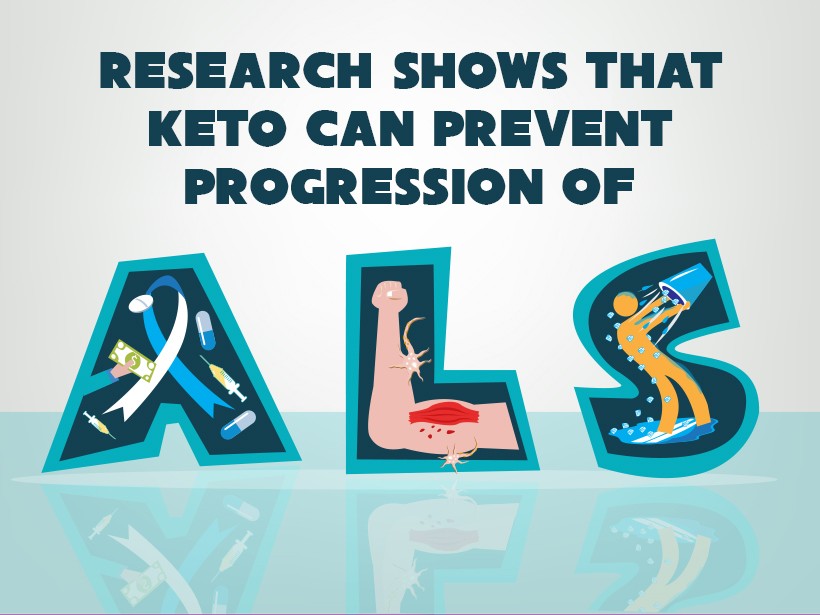Research shows that Amyotrophic lateral sclerosis (ALS) can be treated with a ketogenic diet. This promising therapy involves increasing the number of lipids in a diet; this increases important metabolic byproducts to prevent progression of the disorder. Here’s how it works:
What is ALS?
Amyotrophic lateral sclerosis is a disease where motor neurons degenerate and die, which is followed by muscle wasting. Motor neurons are the cells of your nervous system that basically tell your cells in other parts of your body to do stuff. Muscle wasting is the deterioration of your muscle.
Symptoms and Ketosis
Evidence suggests that malnutrition is part of the disease where, interestingly enough, being more overweight is advantageous to this population.1 In mice with ALS, a high-fat diet like the ketogenic diet caused an increase in weight gain and prolonged survival. Now, this is extra interesting because the ketogenic diet is known to result in weight loss. However, in this diseased environment, weight gain occurs and is actually a good thing.
How Fat Helps
Let’s consider this further. First, during the progression of the disease, there is evidence that malnutrition leads to weight loss which occurs in patients with ALS. In one study where patients with ALS were studied, only 83 percent of them actually consumed the recommended daily amount of calories.2 Where does the ketogenic diet come into this? Well, in another study of 891,920 patients, it was demonstrated that patients who ate more fatty meat and fried food decreased their risk of developing ALS.3
Why Does it Work?
Why in the world does this happen, and why does it work? Well, a high-fat diet slows disease progression in something called superoxide dismutase.4 Superoxide dismutase is an enzyme that functions in essentially destroying certain toxins in your body. In mice with a genetic mutation in the gene for this enzyme (superoxide dismutase 1), ALS results.
In Plain English
Before I explain how this works, keep in mind that ATP is essentially little energy molecules, mitochondria are little organs where these energy molecules are made in your cells, and B-hydroxybutyrate is just a small molecule produced through the breaking down of fatty acids.
Increasing Energy
The ketogenic diet is thought to prolong life in these mouse models because ATP production increased at the mitochondria with B-hydroxybutyrate, a byproduct of metabolism in the ketogenic diet. So, regardless of the mutation in superoxide dismutase, the ketogenic diet can compensate by improving mitochondrial function and the number of motor neurons.5
What Now?
As of right now, studies looking at this concept are focused on animals and dietary intake of fat on disease progression. New studies will likely be looking at how a high-fat or ketogenic diet could treat ALS through interventional trials in support of it. So, if you have ALS or know someone who has ALS, stay tuned at SoNourished for updates on treatment of ALS with the ketogenic diet!
NUTRITIONAL DISCLAIMER
The content on this website should not be taken as medical advice and you should ALWAYS consult with your doctor before starting any diet or exercise program. We provide nutritional data for our recipes as a courtesy to our readers. We use Total Keto Diet app software to calculate the nutrition and we remove fiber and sugar alcohols, like erythritol, from the total carbohydrate count to get to the net carb count, as they do not affect your blood glucose levels. You should independently calculate nutritional information on your own and not rely on our data. The website or content herein is not intended to cure, prevent, diagnose or treat any disease. This website shall not be liable for adverse reactions or any other outcome resulting from the use of recipes or recommendations on the Website or actions you take as a result. Any action you take is strictly at your own risk.
- Study Says Ketogenic Diet Can Improve Sleep - May 9, 2018
- New Research Shows How to Live Longer with Keto Diet - May 8, 2018
- Studies Examine How Keto Affects Immunotherapy Cancer Treatments - May 1, 2018































